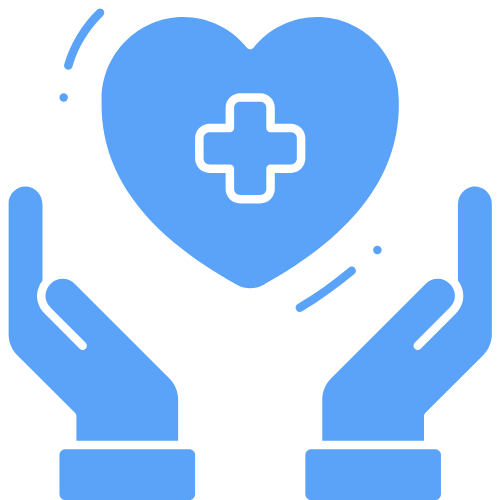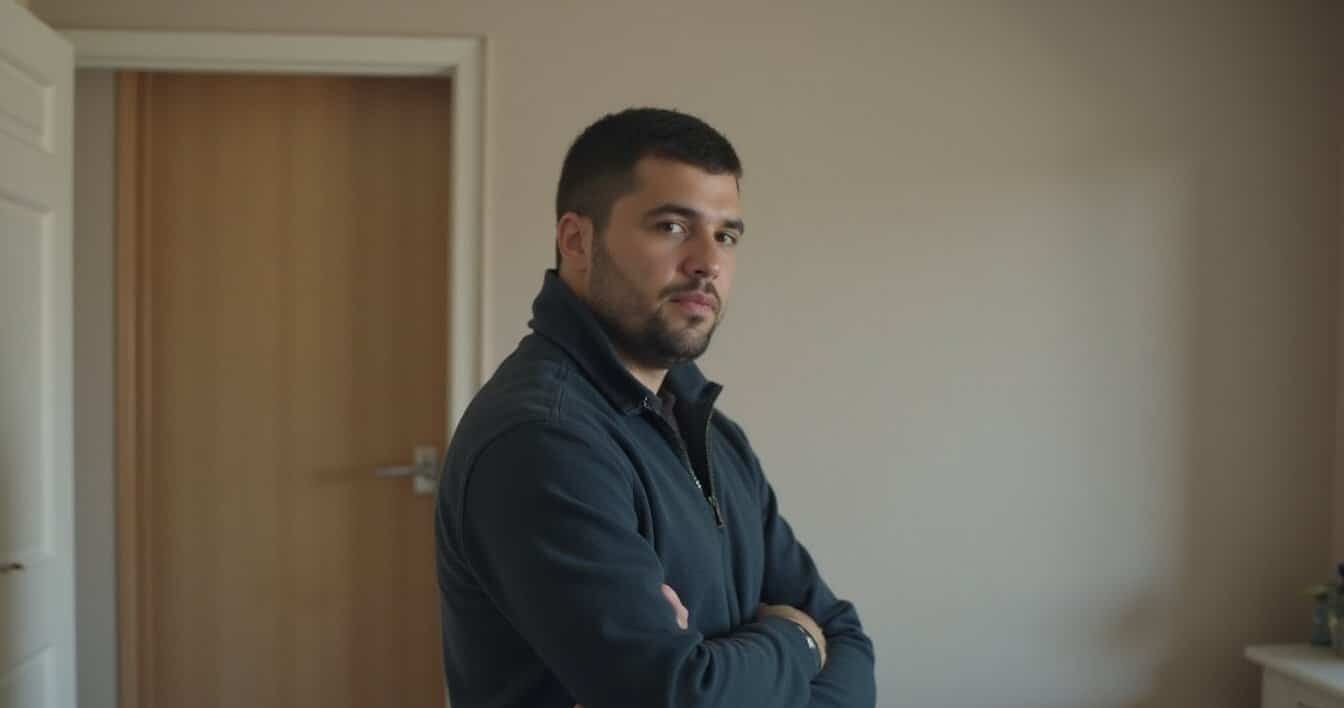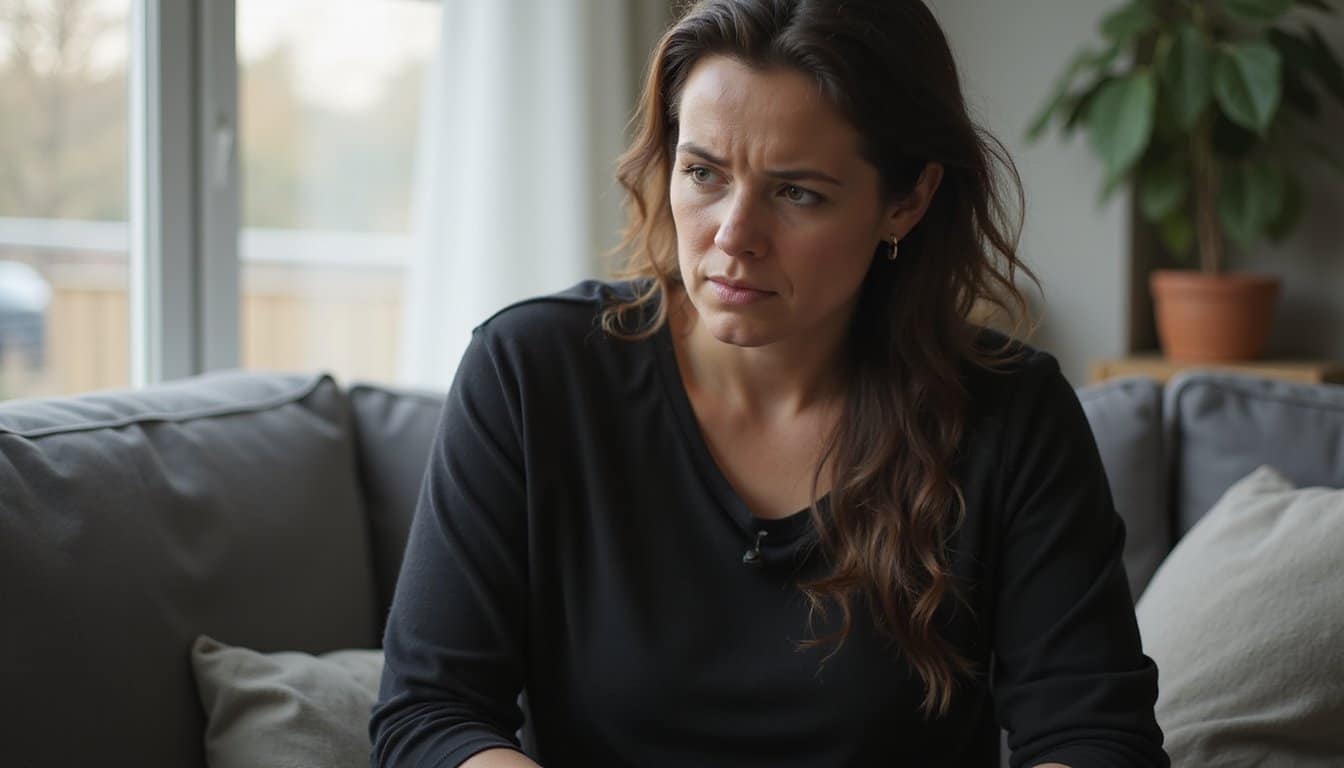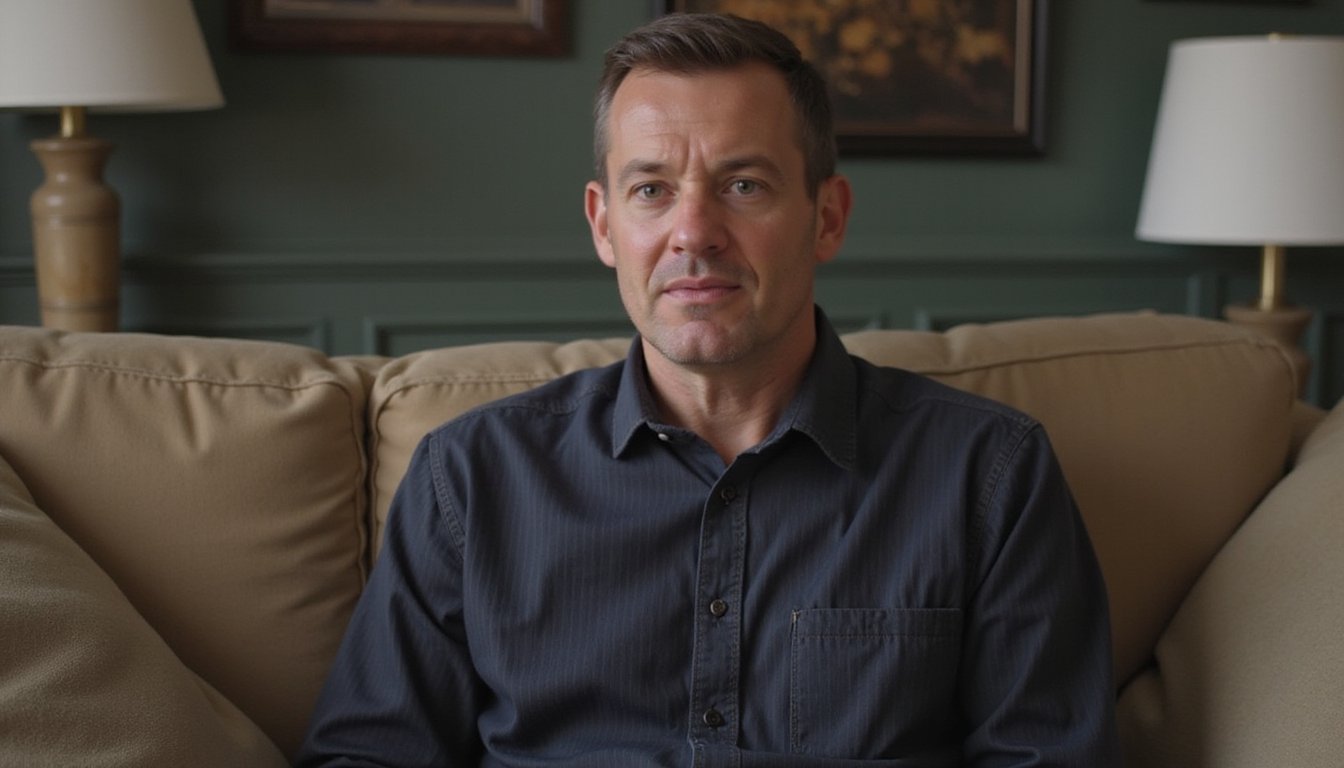Individual therapy proves highly effective for treating substance use disorders, with research showing 51% of clients achieve meaningful progress and 18% reach full recovery through personalized interventions. You’ll benefit from cognitive restructuring techniques, emotional regulation strategies, and a strong therapeutic alliance that creates trust and understanding. Evidence demonstrates a 24% reduction in relapse rates through one-on-one treatment approaches. The evidence-based mechanisms behind these success rates reveal compelling insights about recovery outcomes.
Evidence-Based Success Rates of Individual Therapy

Individual therapy stands out as a highly effective treatment approach for substance use disorders, with recent studies demonstrating significant clinical improvements. Research shows that 51% of clients achieve meaningful progress in their personal growth, while 18% reach full recovery status through personalized therapeutic interventions. Studies indicate that cognitive behavioral therapy shows particularly strong results with a 79% efficacy rate across various conditions. The integration of scientific validation through clinical trials ensures reliable treatment outcomes. Therapists help clients develop healthy coping mechanisms to replace destructive substance use patterns.
The data reveals substantial improvements in treatment outcomes, with distress scores dropping from 77.26 to 64.52 on standardized assessments. Treatment accessibility remains a key factor in demographic outcomes, particularly for high-risk populations and those with co-occurring disorders. Individual therapy‘s effectiveness is especially notable in addressing trauma survivors and chronic relapsers, showing a 24% reduction in relapse rates through enhanced emotional regulation techniques. These evidence-based approaches consistently outperform traditional, non-empirically validated methods in treating substance use disorders.
Core Mechanisms Behind Individual Therapy’s Impact
How does individual therapy create lasting change in substance use disorders? The transformation occurs through multiple interconnected mechanisms that bolster cognitive flexibility and emotional intelligence. Through cognitive restructuring techniques, you’ll learn to identify and challenge harmful thought patterns while developing alternative frameworks for processing addiction triggers. These changes are reinforced by emotional regulation strategies that improve your ability to manage intense feelings and respond adaptively to stress. Research indicates that dual diagnosis treatment is crucial since over 60% of individuals with substance use disorders also have co-occurring mental health conditions.
The therapy’s impact is strengthened through systematic behavioral skill development, where you’ll practice new coping responses and establish structured routines. Evidence shows that contingency management approaches demonstrate higher effectiveness compared to other cognitive-behavioral interventions. The combination of motivational interviewing with cognitive behavioral therapy has shown particular success in reducing substance use. By addressing underlying trauma and examining root causes, you’ll gain deeper insights into vulnerability factors. This inclusive approach, customized to your specific needs, creates sustainable change by rewiring both thought processes and behavioral patterns that maintain addiction.
Key Benefits of One-on-One Treatment Approaches

Your unique expedition with addiction necessitates a customized treatment plan that addresses your specific triggers, history, and co-occurring conditions. One-on-one therapy enables your clinician to design interventions that target your precise needs, leading to vastly improved outcomes with a 24% reduction in relapse rates. Individual therapy helps target mental and physical ailments that may exist alongside addiction. The therapeutic alliance you build with your counselor through individual sessions creates a foundation of trust and understanding that drives successful recovery, as evidenced by the 51% of clients who achieve meaningful clinical improvement. For additional safety, treatment centers employ security solutions to protect sensitive patient information shared during therapy sessions. Clients can engage in emotionally focused work to process difficult feelings in a supportive, non-judgmental environment.
Personalized Treatment Plans Work
Personalized treatment approaches demonstrate consistently higher success rates in addressing substance use disorders through evidence-based methodologies. Research shows that customized interventions, accounting for genetic factors influencing addiction, achieve 24% lower relapse rates compared to standardized programs. These individualized plans effectively address underlying psychological factors while incorporating proven therapies like Rational Emotive Behavior Therapy (REBT), which demonstrates 51% clinical improvement in substance use reduction.
Treatment success increases when programs adapt to specific patient needs, offering flexible scheduling and targeted interventions for co-occurring disorders. With 296 million people worldwide using psychoactive drugs, individualized therapy has become increasingly vital in addressing this global health crisis. Thorough assessments identify root causes, allowing for precise treatment matching and more sustainable recovery outcomes. The evidence suggests that personalized approaches, combined with regular outcome monitoring and adjustment of therapeutic strategies, consistently outperform generic treatment models in achieving long-term sobriety.
Therapeutic Alliance Drives Success
Building a strong therapeutic alliance between counselor and client serves as a cornerstone of successful substance use disorder treatment. When you work one-on-one with a therapist, you’ll experience amplified client autonomy through collaborative goal-setting and individualized treatment pacing. Research shows this alliance considerably improves treatment outcomes, with studies demonstrating a 51% rate of meaningful clinical improvement. The evidence-based techniques utilized during sessions provide proven pathways to recovery. Studies indicate that higher motivation at baseline predicts stronger therapeutic relationships.
Your therapeutic relationship enables personalized skill development, particularly in areas of emotional regulation and relapse prevention. The privacy of individual sessions allows you to investigate trauma and triggers more deeply, while the trust you build with your therapist supports honest disclosure and vulnerability. This focused emotional support translates into better treatment retention and stronger recovery outcomes, as evidenced by substantial reductions in psychological distress scores and improved self-efficacy in managing cravings. Licensed addiction therapists deliver comprehensive treatment incorporating multiple therapeutic approaches including motivational enhancement, cognitive-behavioral, and family therapy techniques.
Challenges and Limitations to Consider
While substance use disorder treatment has made significant advances, several critical challenges and limitations affect its effectiveness across different populations and settings. The shift from substance use culture often leads to social isolation as individuals must rebuild their social networks and develop new skills for mainstream life. Resource limitations further complicate treatment delivery, particularly when addressing diverse client needs that require personalized interventions and alternative monitoring strategies. Studies show that despite evidence-based treatments being available, they often go unused or take years to be adopted in clinical settings.
You’ll find additional barriers in cognitive deficits, literacy challenges, and complex needs of special populations like pregnant women or those with co-occurring disorders. Implementation gaps between evidence-based practices and real-world application persist, while organizational constraints and training requirements strain treatment centers. These challenges underscore the need for flexible, adaptable approaches that can accommodate diverse learning capacities and social circumstances.
Individual Therapy Within Comprehensive Recovery Plans

Individual therapy works most effectively when integrated into a thorough recovery plan that includes multiple treatment modalities. You’ll find that combining individual counseling with group therapy, medical support, and lifestyle interventions creates a synergistic effect, as evidenced by the 24% reduction in relapse rates among clients receiving integrated care. Your recovery plan should strategically incorporate individual therapy sessions to address personal triggers, trauma, and co-occurring disorders while leveraging the broader support system of complementary treatments.
Treatment Integration Benefits
Three key advantages emerge when integrating individual therapy into extensive substance use disorder treatment plans. You’ll benefit from evidence-based outcomes through personalized attention to co-occurring disorders, while collaborative treatment planning allows for targeted interventions addressing your specific mental health needs. The seamless integration with other treatments helps create a more comprehensive healing approach.
Individual therapy works synergistically with other treatment components, maximizing your recovery potential. When combined with group sessions, you’ll gain both personal insights and peer support, strengthening your overall treatment experience. The integration also enables all-encompassing trigger management strategies customized to your unique circumstances.
Your recovery process becomes more substantial through holistic approaches that complement individual therapy. You’ll develop practical coping mechanisms while building stronger support networks, enhancing your ability to maintain long-term sobriety through multiple therapeutic channels working in harmony.
Recovery Plan Components
A thorough recovery plan integrates multiple therapeutic components to address substance use disorders effectively. You’ll work with your therapist through several phases, starting with medical detox and moving into structured therapy sessions. Continual reassessment guarantees your treatment adapts to your changing needs, while strong client-therapist rapport supports your recovery journey.
| Recovery Phase | Key Components |
|---|---|
| Initial | Assessment, detox, personalized planning |
| Intensive | Multiple weekly sessions, CBT, emotional processing |
| Maintenance | Relapse prevention, coping strategies, ongoing support |
Your individualized plan may incorporate specialized techniques like DBT or EMDR based on your specific needs. For those with co-occurring disorders, your therapist will integrate mental health interventions alongside addiction treatment, ensuring a holistic approach that addresses all aspects of your recovery.
Success Through Combined Approaches
When combining therapeutic approaches, research consistently demonstrates superior outcomes compared to single-method treatments. You’ll find that integrating individual therapy with group sessions and medication significantly improves retention rates and extends abstinence duration.
Individual therapy’s customized pacing allows for targeted treatment of co-occurring mental health conditions, while group therapy provides essential peer support and accountability. This simultaneous treatment of psychological challenges and substance use proves especially effective, with CBT combined with medication doubling long-term abstinence rates. Success rates climb to 60-90% in programs like methadone maintenance when paired with individual counseling. The multi-layered support system created through combined approaches boosts engagement, strengthens coping strategies, and provides extensive care for sustainable recovery outcomes.
Comparing Individual vs. Group Treatment Outcomes
Research comparing individual and group therapy outcomes in substance use disorder treatment reveals both approaches achieve similar success rates for abstinence and recovery. While individual therapy excels through personalized interventions that address unique trauma and comorbidities, group settings offer invaluable peer support and cost-effective treatment delivery.
You’ll find that alternative addiction models increasingly recognize the benefits of combining both modalities. Studies show improved engagement and retention when you participate in both individual and group sessions. The individualized attention you receive in one-on-one therapy complements the social skill development and diverse perspectives gained in group settings. This integrated approach allows you to work through personal challenges privately while benefiting from peer accountability and shared experiences, leading to better treatment outcomes and sustained recovery.
Long-Term Recovery Rates and Sustainability
You’ll find that long-term recovery from substance use disorders presents significant challenges, with 85% of individuals experiencing relapse within their initial year after treatment. Your chances of maintaining sobriety improve substantially after two years, when relapse rates drop to 40%, and continue to decrease with five or more years of abstinence. Your success in achieving sustained recovery depends heavily on personalized treatment approaches, ongoing support systems, and holistic care that addresses both immediate and underlying factors contributing to substance use.
Sustained Recovery Outcomes
Despite substantial advances in addiction treatment, sustained recovery remains a complex challenge with less than half of individuals achieving prolonged abstinence within three years post-treatment. Recovery milestone tracking shows that most people need about 27 years from initial use to lasting sobriety, with relapse rates dropping markedly after two years but remaining a concern even after five years.
You’ll find that successful life skills development through individual therapy can improve your chances of maintaining sobriety, especially when combined with peer support networks and family involvement. Individual therapy’s effectiveness increases when it addresses underlying trauma, co-occurring disorders, and personal triggers. However, you should know that factors like early substance use onset, male gender, and repeated treatment episodes can extend your recovery timeline. Integrating multiple support systems, including 12-Step programs alongside individual therapy, offers the best outcomes for sustained recovery.
Relapse Prevention Success
Successful relapse prevention hinges on structured therapeutic approaches that consistently outperform traditional treatment methods. Evidence-based mindfulness programs, particularly MBRP, demonstrate superior outcomes with fewer substance use days and reduced heavy drinking at 12-month follow-ups compared to standard care.
You’ll find that relapse risk reduction strategies are most effective when they’re personalized to your specific needs. Individual therapy that incorporates cognitive-behavioral techniques and motivational interviewing can greatly delay initial drug use and strengthen your recovery commitment. When combined with trauma resolution and dual diagnosis management, these approaches address the root causes of substance use. The data shows particularly promising results with REBT, achieving 51% clinical improvement and 18% full recovery in long-term studies, highlighting the sustainability of structured therapeutic interventions.
Personalization Aspects of Individual Counseling
When treating substance use disorders, individual counseling must be carefully personalized to address each client’s unique circumstances, triggers, and recovery needs. Through tailored goal setting and client centered planning, your therapist will create a customized treatment approach that considers your specific mental health profile, cultural background, and life experiences.
| Treatment Aspect | Personalization Method | Expected Outcome |
|---|---|---|
| Therapy Style | CBT/DBT adaptation | Bolstered coping skills |
| Session Structure | Flexible scheduling | Consistent engagement |
| Root Cause Analysis | Trauma-informed care | Deep healing |
| Treatment Intensity | Variable pacing | Optimal progress |
| Support Systems | Custom network building | Long-term success |
Your treatment plan will evolve as you progress, incorporating different therapeutic approaches and complementary therapies based on your response and changing needs. This dynamic approach guarantees you receive the most effective support for your recovery journey.
Role of Therapeutic Alliance in Treatment Success
Building on the personalized approach to treatment, the therapeutic alliance serves as a cornerstone of effective substance use disorder recovery. You’ll find that client receptiveness and clinician competence work together to create a collaborative partnership focused on shared goals and emotional trust. Research shows that older clients (18-24) and those with higher baseline motivation tend to form stronger alliances with their therapists.
The strength of this therapeutic bond directly impacts your treatment success through increased engagement, better retention rates, and improved coping strategies. While clinicians must demonstrate skill in maintaining alliance quality through active listening and empathy, you’ll also need to actively participate in the relationship. This mutual commitment creates a foundation for both immediate treatment benefits and potential long-term recovery outcomes.
Integration With Family Support Systems
Integrating family support systems into substance use disorder treatment drastically improves recovery outcomes through multiple pathways. When you incorporate family oriented support into individualized interventions, you’ll augment treatment effectiveness by addressing environmental triggers and strengthening accountability networks.
| Family Support Element | Treatment Impact |
|---|---|
| Communication Skills | Reduces conflict triggers |
| Boundary Setting | Prevents codependency |
| Psychoeducation | Improves understanding |
| Active Participation | Increases retention rates |
You’ll find that family involvement creates a more expansive recovery framework by modifying home environments to support abstinence. This integration helps identify and address generational patterns while developing coping strategies for both clients and family members. The approach reduces isolation through expanded support networks and establishes clear accountability measures, making it easier to maintain long-term recovery goals and recognize early warning signs of potential relapse.
Frequently Asked Questions
How Long Does It Typically Take to See Results From Individual Therapy?
You’ll typically see meaningful results from individual therapy after 15-20 sessions, though progress varies based on your commitment and specific goals. Steady progress monitoring shows that about half of clients experience significant improvement during this timeframe. Realistic goal setting with your therapist helps establish expectations and track advancement. Your active participation, consistency in attendance, and willingness to apply therapeutic techniques between sessions will influence how quickly you notice positive changes.
What Qualifications Should I Look for When Choosing a Substance Use Therapist?
When selecting a substance use therapist, you’ll want to look for licensed clinicians with specific addiction treatment expertise. Verify they hold certifications like CADC or MAC, and check their state licensure status. Look for professionals trained in evidence-based approaches like CBT and motivational interviewing. They should have completed supervised clinical hours and have experience treating co-occurring disorders. Don’t hesitate to ask about their specific training and experience with substance use disorders.
Is Individual Therapy Covered by Most Insurance Plans for Substance Use Disorders?
You’ll find that coverage for individual therapy varies greatly among insurance plans. While many plans offer affordable coverage options for substance use treatment, you’ll need to verify specific benefits with your provider. Provider network limitations can affect your access and out-of-pocket costs. It is crucial to check if your plan requires pre-authorization or has session limits. Medicaid coverage differs by state, so you should contact your insurance provider to understand your exact benefits.
Can I Continue Working While Attending Individual Therapy for Substance Abuse?
Yes, you can continue working while attending individual therapy for substance abuse. Many treatment centers offer flexible scheduling to help you balance work responsibilities, including evening and weekend sessions. You can often maintain a part-time work schedule while prioritizing your recovery. Your employer may provide accommodations through EAP programs, and protected time off for appointments. With proper planning and support, you’ll be able to manage both work and treatment effectively.
What Happens if I Relapse During Individual Therapy Treatment?
If you relapse during treatment, it’s crucial to understand this is a common part of recovery, not a failure. Your therapist will help you by managing relapse triggers and developing relapse prevention strategies specific to your situation. You’ll work together to analyze what led to the relapse, strengthen your coping skills, and adjust your treatment plan accordingly. Remember, being honest about your relapse helps your therapist provide better support for your recovery path.
















